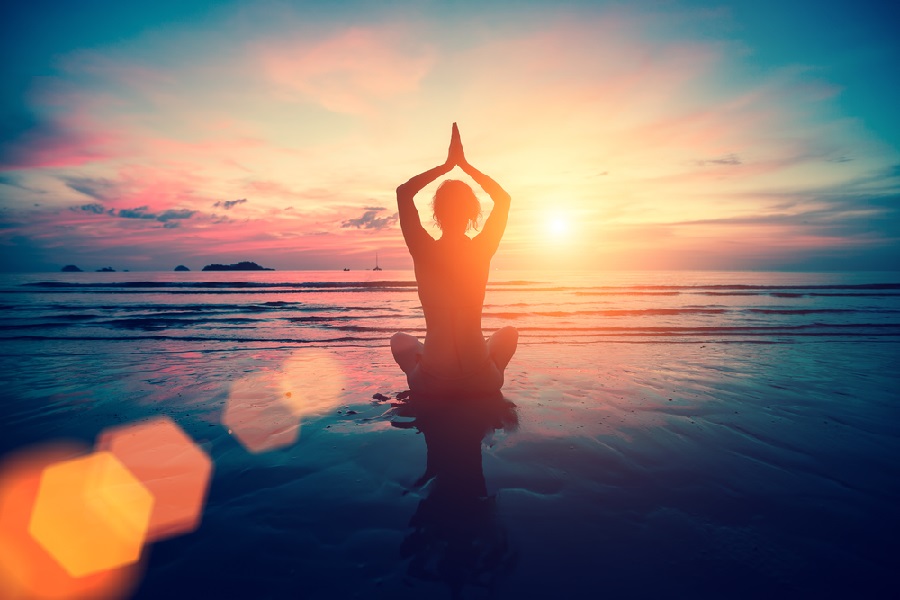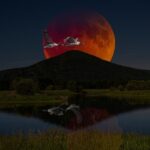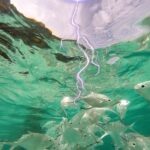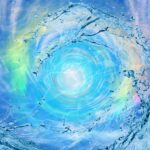Living in the moment is banded around like its the most normal thing to be doing. From new-agers to Buddhist spiritualists to even contemporary psychology, we are told make the most out of the present and stop living in the past or the future.
It is precisely the fact that human beings have awareness, which makes it so hard for us to live in the present moment. Why? Because we have a choice. Animals have a different kind of consciousness, they are entirely in their bodies. Our awareness changes as we grow older. In that journey we stop being in our bodies, as we were as children, and begin occupying our heads.
Human psychology has evolved to live in the past and the future, rather than the present moment. While other species have physical bodily instincts and reflexes to help with their survival, our survival now relies more on learning, strategy and planning. We have forgotten to trust the earth’s abundance for our survival and now just operate from a place of how we can best mitigate not having anything.
Of course we can’t learn without drawing on our past, and we can’t make plan without thinking about the future. When we make a so-called mistake, we feel what that means for us and we make different choices next time. We use our past to orientate differently to the future. If we stay attached to our mistakes we might fall into guilt or even shame, rather than regret, and this causes us ruminate and get stuck with our past.
Regret is a useful emotional reaction, it allows us to reflect on what’s happened and learn from it so we don’t make the same mistake again. Understanding also that sometimes learning through a process of mistakes is natural and sometimes the quickest root to being freer to live in the moment. Since when we don’t allow ourselves to take risks, we get equally stuck in some kind of paralyzed fear of moving forward with our lives. This isn’t living in the present. It’s avoiding life.
Some of us are more orientated towards the future. We prefer to keep moving and moving, trying new things with too many creative ideas nothing of which gets fully anchored or completed. This is another way of avoiding the present moment. When we constantly orientate to our future vision or what might be happening, we are too scared to look at the present and deal with what actually is facing us, and we don’t have the necessary grounding to get real with our lives.
When we have fear about what the future holds, we can bury our heads in the sand or we can act upon them and do what needs to be done, in a balanced way. To some degree we require this uncomfortable feeling that urges us forward into the future. But a lot of the time it becomes chronic fear, and deep down its all our very old programming around our fear for survival that is stored from the deepest regions limbic and reptilian brains, and within our DNA, our ancestral wounds.
To the human mind, time is viewed as continuous and linear process. As it is one continuous flow, every present moment is already past and we are in the future. We tend to organise moments so they are states, rather than continuous flows.
If we were more aware of the continuous nature of time, we might be more able to let go of our more difficult states of consciousness, and resist labelling them. We like to organise our experiences into labels so we can understand them, but this actually takes us away from being in the present and actually experiencing the state, as not just one thing, but rich and full of many different facets of experience.
We know from research that when we can let go of our pervasive, negative thoughts and just observe our thoughts and emotions, we are much happier. Meditation and mindfulness research clearly shows that our happiness levels come down to not worrying.
So how do we strike the balance? How do we know when we need to face things and not bury our head in the sand, and how do we know when to go back to the past and allow ourselves to learn from it?
Part of the solution is to work on just being present in the moment. That means using your senses, your awareness, your eyes, your eyes to just notice yourself and your thoughts. That’s all great, but our emotions can start going crazy once we have noticed what we didn’t want to notice.
Well then the next thing is to breathe. Notice how the fearful thoughts or emotions contract your breath. Don’t try and change it for now, just notice it. Notice from what you are suffering from. There are different ways to process it from this point. If you know some relaxation techniques, then it might be good to pick that up.
Sometimes though, there’s a larger process unfolding behind it all, and we just need to be with it, and allow ourselves to be in the struggle and conflict. Sometimes this is the quickest way for us to come out. Being in the present is about being there without trying to change anything. This is very hard for most of us to do. We fight so hard to be somewhere else. This is also called future living.
Every moment is unique, it’s not like any other, despite what our mentalising and mind tells us. We are not just one person with a fixed identity that spans our entire life, despite what we would like to think, we are so much more than that. We are not the sum of our memories, desires, thoughts and emotions, we are so much more than that. We are life happening through us. Pause for a moment and whether you can appreciate that or feel grateful for that or not, just notice yourself at least attempting that. The intention to remember that you are life happening can be very powerful.
So we are not who we were yesterday or last year, but beyond that, we are never fixed. If we can resist identifying with anything, we totally free up our being to be whatever it wants to be in any given moment. This is way beyond all the roles, identities and selves.
Difficult times and transitions in life attempt to take us more into this realisation, that we are not a fixed, consistent identity. They are there to try and free us up, so all the ways we have encumbered ourselves over the years get dissolved. It’s an uncomfortable, painful process, but at the end of it we have our freedom back.






